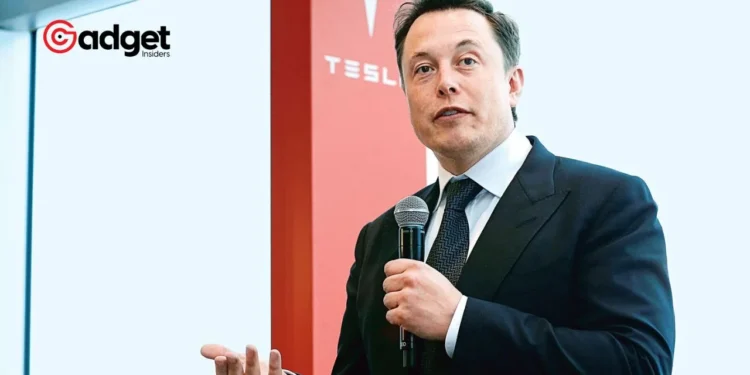In the ever-evolving landscape of technology and innovation, a thrilling competition is unfolding that could revolutionize how humans interact with machines. Elon Musk, known for his groundbreaking work with Tesla and SpaceX, has long been a prominent figure in pushing the boundaries of technology.
His latest venture, Neuralink, aims to develop brain chips that could enable paralyzed individuals to regain mobility and perform everyday tasks independently.

However, Musk is not alone in his quest to harness the capabilities of brain-computer interfaces (BCIs). Tech magnates Jeff Bezos and Bill Gates have entered the arena, backing a promising startup, Synchron Inc., with a substantial investment aimed at accelerating the development of similar technology.
This burgeoning sector of brain implants, a field Musk once dominated, is now witnessing a high-stakes rivalry that could shape the future of medical technology.
The Rise of Neuralink: Elon Musk’s Vision of a Connected Future
Elon Musk’s Neuralink has made headlines with its ambitious project to develop implantable brain chips. In a recent demonstration, a quadriplegic patient was able to control a computer cursor and even play video games using just his thoughts.
This technology, according to Musk, has the potential not only to restore basic functions but also to enable people with spinal injuries to walk again.

In a post on the social media platform X, formerly known as Twitter, Musk outlined the long-term goals of Neuralink: “It is possible to shunt the signals from the brain motor cortex past the damaged part of the spine to enable people to walk again and use their arms normally.”
While these developments are still in the trial phase, the implications for future accessibility and independence for paralyzed individuals are profound.
Jeff Bezos, Bill Gates team up to beat rival Elon Musk's Neuralink https://t.co/PhsqvJJ3iI
— Lala Hill (@CeeCee43210) April 17, 2024
Synchron Inc.: A Formidable Challenger Backed by Bezos and Gates
While Musk’s Neuralink continues to develop and test its technology, Synchron Inc. has emerged as a formidable competitor. Founded in 2012, Synchron has caught the attention of Jeff Bezos and Bill Gates, who have collectively invested $75 million into the company.
Synchron’s approach to BCIs also focuses on improving mobility for those with severe physical limitations, but it boasts advancements that might allow it to reach the market sooner than Neuralink.

Thomas Oxley, CEO of Synchron, shared insights into the company’s progress: “We are further along the journey to bringing this product to the public. We have already installed devices in seven patients across the USA and Australia.”
The feedback from trials has been overwhelmingly positive, highlighting moments of joy and empowerment for patients and their families as they experience renewed independence.
The Implications and Future of Brain-Computer Interfaces
As both Neuralink and Synchron race to perfect their technologies, the potential benefits for millions of individuals who face physical challenges every day grow increasingly tangible.
These brain implants could fundamentally alter the landscape of healthcare and personal mobility, providing unprecedented control and freedom to those who have been most restricted by their physical conditions.
Furthermore, the involvement of high-profile entrepreneurs like Musk, Bezos, and Gates underscores the significant financial and research investment flowing into BCIs, highlighting a collective belief in the transformative potential of this technology.
As this exciting field of brain-computer interfaces expands, the focus remains on the profound impact these technologies could have on enhancing human capabilities and improving lives.
With such powerful backing and promising technological breakthroughs on the horizon, the future looks incredibly bright for those who stand to benefit most from these innovations.










